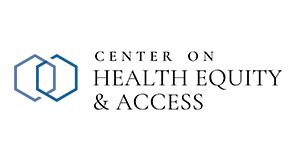U.S. News Ranks Top Hospitals for Equitable Access in 2024
U.S. News & World Report released its inaugural list of “Best Community Hospitals for Equitable Access” at its conference on the state of equity in the U.S., recognizing 53 hospitals across 26 states for their extraordinary efforts to provide quality health care to socio-economically disadvantaged communities. The recognition highlights hospitals' efforts to address health equity by improving access to care in underserved areas, with prominent states such as California and North Carolina featuring multiple hospitals on the list. Selection criteria included serving a significant percentage of patients from socio-economically disadvantaged communities, having a strong Medicaid patient base, and treating a diverse racial and ethnic population.
Celebrating Pride Month with Lancaster Pride
In a new episode of Managed Care Cast celebrating Pride Month 2024, Lancaster Pride President Tiffany Shirley talks about the organization's history and her own journey within the lesbian, gay, bisexual, transgender and questioning (LGBTQ)+ community. The episode focuses on the origins of Lancaster Pride's motto, “Hate Has No Place Here,” and explores key policy priorities in an election year aimed at promoting inclusivity and understanding. Shirley emphasizes that equitable access to health care is crucial, and advocates for legislation that ensures comprehensive coverage, affordable mental health care, increased funding for LGBTQ+-specific services, and strong anti-discrimination measures in health care.
Explore the importance of biomarker testing to identify genetic mutations and tailor treatment
A recent episode of the Managed Care Cast featured Christine Ashcraft, president and founder of YouScript. She discussed the importance of genetic awareness and the impact of new biomarker testing methods. Despite the fact that genetic variations play a key role in a patient's response to medications, many patients and healthcare providers are unaware of these factors. Recent legislative efforts in several states aim to improve access to biomarker testing and allow for more personalized and effective treatment plans based on an individual's genetic profile. Ashcraft emphasized that such advances have the potential to significantly reduce adverse drug events and improve patient care.
Dr. Thomas Hall discusses the impact of geographic and socio-economic factors on dermatology outcomes
Thomas Hall, MD, FAAD, of US Dermatology Partners, discussed the significant disparities in dermatology care resulting from the uneven distribution of dermatologists, especially in rural areas. This geographic imbalance leads to delayed diagnoses, higher health care costs, and poorer patient outcomes. To address these issues, US Dermatology Partners is establishing clinics in medically underserved areas to improve access and promote health equity. The company has a goal of opening 30 clinics within three years and is on track to exceed that goal with more than 20 already up and running. Hall emphasized the importance of grassroots activism for policy change and system reform, encouraging dermatologists to partner with their communities and professional organizations to address these disparities and support the medically underserved.
Equity in Motion at CMS Health Equity: Dr. Aletha Maybank Discusses AMA's Progress Towards Justice
At the CMS Health Equity Conference, Aretha Maybank, MD, MPH, chief health equity officer for the American Medical Association (AMA), spoke about the significant progress made toward health equity in recent years. She addressed the AMA's historical complicity in racial injustice and highlighted the AMA's efforts to advance health equity by eliminating racial essentialism and embedding equity in medical practice and policy. Maybank emphasized the importance of moving beyond mere acknowledgment to action, even in the face of resistance and criticism.



